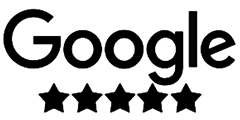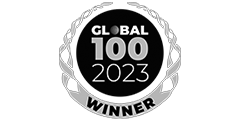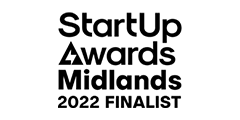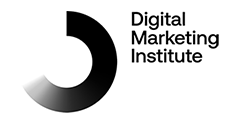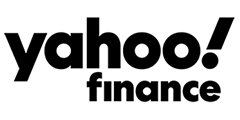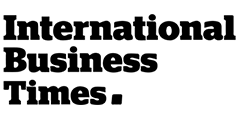Blog
Building a cohesive and productive team is crucial for success. Companies are increasingly turning to innovative methods, and one such tool gaining popularity is the use of personality tests.

February 5, 2024
By
Kamran Awan
Category
Business
In today's fast-paced and dynamic work environments, building a cohesive and productive team is crucial for success. Companies are increasingly turning to innovative methods, and one such tool gaining popularity is the use of personality tests. These assessments go beyond traditional hiring processes and provide insights into individuals' unique traits, paving the way for more effective team building.
Definition of personality tests
Personality tests are tools designed to assess an individual's characteristics, behaviour patterns, and preferences. These tests delve into various aspects, such as communication styles, decision-making processes, and interpersonal skills.
Importance of team productivity
Team productivity is the heartbeat of any successful organisation. A team that collaborates seamlessly, understands each other's strengths, and communicates effectively is more likely to achieve its goals. Personality tests offer a unique lens to understand team dynamics and enhance productivity.
Linking personality tests and team building
By integrating personality tests into the team-building process, organisations gain valuable insights into the strengths and weaknesses of team members. This knowledge enables leaders to create well-rounded teams that complement each other, fostering a harmonious and efficient work environment.
Types of personality tests
Myers-Briggs Type Indicator (MBTI)
MBTI categorises individuals into 16 personality types based on preferences in four dichotomies: extraversion/introversion, sensing/intuition, thinking/feeling, and judging/perceiving.
DISC Assessment
DISC focuses on four personality traits: dominance, influence, steadiness, and conscientiousness. It helps identify communication styles and preferred ways of working.
Big five personality traits
This model assesses openness, conscientiousness, extraversion, agreeableness, and neuroticism. It provides a comprehensive overview of an individual's personality.
StrengthsFinder
StrengthsFinder identifies an individual's top strengths out of 34 themes, guiding teams to leverage each member's unique abilities.
Understanding team dynamics
Role of individual personalities
Individual personalities play a crucial role in team dynamics. Recognising and appreciating diverse personalities contribute to a balanced team with varied skills and perspectives.
Complementary skill sets
Personality tests help identify complementary skill sets within a team. Combining individuals with different strengths ensures that all aspects of a project are covered.
Handling conflicts within the team
Understanding personality differences aids in resolving conflicts effectively. Teams can navigate disagreements by acknowledging diverse viewpoints and finding common ground.
Benefits of using personality tests
Improved communication
Personality tests enhance communication by shedding light on preferred communication styles. Teams can adapt their communication methods to suit each member's preferences.
Enhanced collaboration
Collaboration thrives when team members understand and appreciate each other's strengths. Personality tests facilitate collaboration by highlighting complementary skills.
Increased employee satisfaction
When individuals feel understood and valued, job satisfaction increases. Personality tests contribute to a positive work environment, boosting overall employee satisfaction.
Boosted productivity
Teams that leverage each member's strengths and work cohesively are inherently more productive. Personality tests provide the roadmap for optimising team productivity.
Implementing personality tests in team building
Selecting the right test
Choosing the appropriate personality test is crucial. Different tests cater to various aspects of personality, and selecting the right one aligns with the organisation's goals.
Professional facilitation
Engaging a professional facilitator ensures that the results are interpreted correctly. Facilitators guide teams in understanding and applying insights for effective team building.
Integrating results into team development plans
The true value of personality tests lies in how organisations integrate the results into their team development plans. This involves creating strategies to capitalise on strengths and address weaknesses.
Common misconceptions
Limitations of personality tests
While valuable, personality tests have limitations. Understanding these limitations helps organisations use them as a complementary tool rather than a sole determinant.
Addressing scepticism in the workplace
Scepticism regarding personality tests is common. Transparent communication and education on the purpose and benefits can help overcome scepticism within the workplace.
Ethical considerations in using personality tests
Respecting employee privacy
Respecting employee privacy is paramount. Organisations must ensure that the use of personality tests complies with privacy regulations and respects individual boundaries.
Ensuring fairness in evaluation
To prevent bias, organisations should implement fair evaluation processes based on personality test results. This promotes an inclusive and equal work environment.
Future trends in team building
Technological advancements in personality assessments
As technology evolves, personality assessments are likely to become more sophisticated. The integration of artificial intelligence and machine learning could revolutionise the accuracy and relevance of these tests.
Continuous learning and adaptation
The future of team building involves continuous learning and adaptation. Organisations that embrace change and encourage ongoing development will thrive in the ever-evolving business landscape.
Conclusion
Incorporating personality tests into team building is a strategic move that fosters understanding, collaboration, and productivity. Recognising the unique qualities of each team member creates a harmonious work environment.
For organisations yet to embrace personality tests in team building, the time is now. The benefits far outweigh the challenges, and the investment in understanding team dynamics pays off in the long run.
FAQs
Q: Are personality tests a one-size-fits-all solution for team building?
A: No, personality tests are tools that need to be carefully selected based on the organisation's goals and the specific dynamics of the team.
Q: Can personality tests accurately predict team success?
A: While personality tests offer valuable insights, they are one of many factors influencing team success. Real-world application and adaptability also play pivotal roles.
Q: How often should personality tests be conducted within a team?
A: The frequency of personality tests depends on the organisation's needs. Conducting tests during significant team changes or projects can provide timely insights.
Q: Do personality tests hinder diversity within a team?
A: Personality tests, when used ethically, should not hinder diversity. In fact, they can enhance diversity by ensuring a variety of skills and perspectives.
Q: Is there a preferred personality test for team building, or does it vary by industry?
A: The preferred personality test depends on the specific goals of the team and organisation. Industry considerations may influence the choice, but alignment with team dynamics is crucial.
To find out more and how we help you start your very own Digital Agency, please contact a member of our team.
Share this Post
